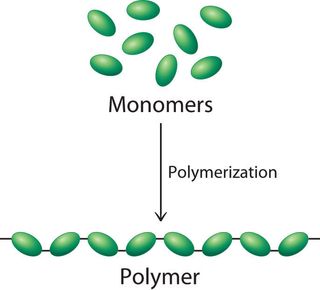Reusing Polymers: Promoting a Circular Economy
Reusing Polymers: Promoting a Circular Economy
Blog Article
Checking Out the Varied Applications and Benefits of Polymers in Different Industries
Polymers, with their diverse range of residential or commercial properties and performances, have actually become important in different markets, each gaining one-of-a-kind benefits from their application. From boosting security and performance in the auto sector to transforming medical devices in the medical care industry, polymers play a crucial function.
Automotive Industry Applications
Polymers play a pivotal role in enhancing the efficiency and longevity of numerous components within the automobile sector. One noticeable use of polymers in the auto industry is in the production of light-weight elements.

Medical Care Industry Benefits
In various healthcare applications, the advantages of making use of polymers are widely acknowledged for their diverse series of valuable homes. Polymers play an essential role in the medical care market as a result of their adaptability, biocompatibility, and cost-effectiveness. One of the key benefits of polymers in health care is their capacity to be customized to particular needs, such as adaptability, resilience, and biodegradability, making them perfect for a vast array of medical applications.
Polymer-based products are extensively made use of in clinical devices, such as catheters, implants, prosthetics, and drug distribution systems, because of their biocompatibility and capacity to mimic all-natural tissues. These products can decrease the risk of sensitive reactions or rejections, boosting individual safety and end results. Furthermore, polymers are light-weight, making them appropriate for wearable medical gadgets and ensuring client comfort.
Moreover, polymers allow the growth of ingenious therapy techniques, such as hydrogels for tissue engineering and nanocomposites for targeted medication delivery. Their simplicity of handling and sterilization makes them crucial for preserving high requirements of health in medical care settings. In general, the diverse benefits of polymers contribute substantially to advancements in clinical innovation and individual care.
Ecological Benefits of Polymers

In addition, polymers can add to power financial savings as a result of their lightweight nature. In industries such as transport, lightweight polymer products can help in reducing gas consumption and greenhouse gas emissions. Additionally, polymers can enable the growth of energy-efficient products such as insulation products that enhance energy conservation in buildings.
Furthermore, polymers play an essential duty in minimizing Going Here water air pollution. As an example, the use of polymer-based filtration systems can properly eliminate contaminants and impurities from wastewater, guarding water resources and communities. Generally, the ecological benefits of polymers make them useful properties in promoting sustainability and environmentally friendly methods across various markets.
Polymers in Electronic Devices and Modern Technology
Considering the raising need for ingenious and sustainable options in contemporary markets, the assimilation of advanced polymer technologies in the world of electronics and modern technology has become an essential strategy for driving effectiveness and efficiency. Polymers have actually transformed the electronics industry by allowing the manufacturing of lighter, much more versatile, and durable electronic gadgets. From mobile phones to medical devices, polymers play a critical role in enhancing product design and functionality.
One considerable advantage of polymers in electronic devices is their protecting properties, which aid secure delicate digital components from ecological factors and electrical interference. In addition, polymers are essential in the advancement of flexible displays, wearable innovation, and printed electronics, offering unlimited opportunities for creating smart and interconnected gadgets.
In addition, the use of polymers in electronic product packaging has actually brought about developments in miniaturization and thermal administration, enhancing the general performance and reliability of electronic systems. As innovation remains to develop, the adaptability and adaptability of polymers will definitely drive even more technology in the electronics industry, shaping the future of modern technology.
Function of Polymers in Building And Construction and Facilities
The assimilation of innovative polymer materials in construction and infrastructure tasks has actually reinvented the way frameworks are designed and constructed in modern-day More Info times. Polymers provide many benefits in the construction market due to their convenience, longevity, and cost-effectiveness. One key role of polymers in construction is their use in coatings and sealants, providing defense against environmental variables such as dampness, UV radiation, and deterioration. Furthermore, polymers you can look here are used in the production of lightweight and high-strength composite materials, boosting the structural honesty of structures while lowering total weight.
In addition, polymers play a critical duty in sustainable building practices by allowing the growth of energy-efficient structures. Protecting products made from polymers help regulate interior temperature levels, decreasing the need for heating and cooling down systems and inevitably reducing power intake - Polymers.
Conclusion
In conclusion, polymers play a crucial role in various markets such as automobile, health care, environmental, electronics, and construction. From improving fuel performance in vehicles to boosting clinical devices, polymers offer countless benefits.
Report this page